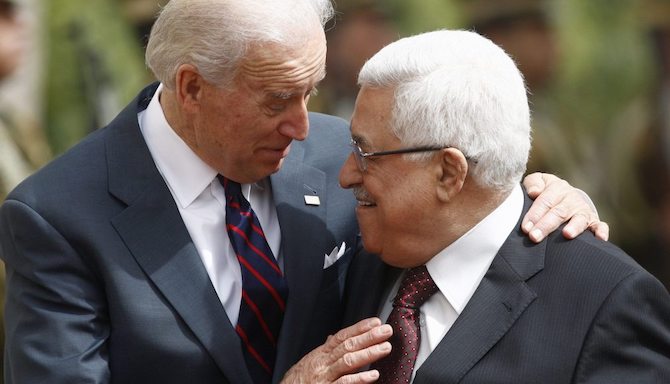President Biden’s misguided fantasy
Two states, writes British editor Douglas Murray, are “not a solution. It’s part of the problem.”
By Jerold S. Auerbach
JNS
Feb 29, 2024
The Biden administration, which is anything but comfortable with Israel, may have reached a new low. Recently, in response to the possibility that Israel might increase settlements in biblical Judea and Samaria, U.S. Secretary of State Antony Blinken announced that settlement expansion is “inconsistent with international law,” adding that it is “counterproductive to reaching an enduring peace” and “only weakens, doesn’t strengthen, Israel’s security.”
He did not cite any relevant provision of international law, probably because there is none.
New York Times diplomatic correspondent Edward Wong, not known for writing about Israel, identified the West Bank as “Palestinian territory that is occupied by Israel.” (In fact, “Palestinian territory” comprises biblical Judea and Samaria.) His primary source was Jeremy Ben-Ami, president of the left-wing organization J Street. It is, however, difficult to “occupy” your ancient homeland. Millennia before the appearance of Palestinians, Jews inhabited Jerusalem and Hebron, where their holiest sites are located.
The question of settlement legality, and the denigration of Israel for permitting—no less encouraging—it, has a long history. The first settlement, Rishon Letzion, was founded by Russian Jewish immigrants in 1882. “Tower and stockade” settlements were built by kibbutzniks under British Mandatory rule following World War I. Israel’s stunning victory in the Six-Day War in June 1967, which returned Judea and Samaria to the Jewish people, launched the modern settlement movement. By now, more than 500,000 Israelis live in their biblical homeland.
Jewish settlements have provoked unrelenting laceration from Israel’s critics. It is seldom recognized that Article 80 of the U.N. Charter preserved the rights of the Jewish people to “close settlement” throughout the land west of the Jordan River. According to U.N. Security Council Resolution 242, Israel was permitted to administer the land until “a just and lasting peace in the Middle East” was achieved.
Even then, it would only be required to withdraw its military forces from “territories,” not “the territories” or “all the territories” that it had regained. So it was that the internationally recognized legal right of Jews to “close settlement” in Judea and Samaria was assured.
U.S. President Joe Biden is not convinced, insisting that “in our view, it has to be a two-state solution” that satisfies both Israelis and Palestinians. Blinken concurred, asserting that “the best way to resolve the conflict remains a two-state solution.” One day earlier, however, Israeli Prime Minister Netanyahu had rejected the idea of a Palestinian state that includes Gaza. Indeed, he insisted that once the war with Hamas ended, Israel would retain security control over all land west of the Jordan River (including biblical Judea and Samaria, and Gaza).
Douglas Murray, associate editor of London-based The Spectator, has provided a scathing critique of a two-state solution, identifying it as “one of the least successful ideas in the world.” Why, he wonders, “after Palestinians had carried out the most brutal day of terror since the creation of the State of Israel, should they be rewarded with a state?” And why should the Palestinian Authority, whose 88-year-old leader Mahmoud Abbas is now serving the 19th year of his four-year term, be its governing authority?
Two states, Murray wisely concludes, are “not a solution. It’s part of the problem.”
By now, Biden should have realized that pontification about the necessity of a two-state solution is unlikely to be fulfilled, even though New York Times columnist Thomas L. Friedman has repeatedly (as recently as Feb. 28) endorsed it. He might even look to his predecessor Donald Trump for a wiser course. Trump relocated the U.S. embassy to Jerusalem; recognized Israeli sovereignty over the Golan Heights; ended funding for UNRWA, the U.N. agency for Palestinian refugees (most of whom were long gone); and abandoned the prevailing government position that settlements in Judea and Samaria are the barrier to a peace agreement.
Above all, he might understand that Netanyahu is determined to do what is best for Israel, not what may please Biden.

No comments:
Post a Comment